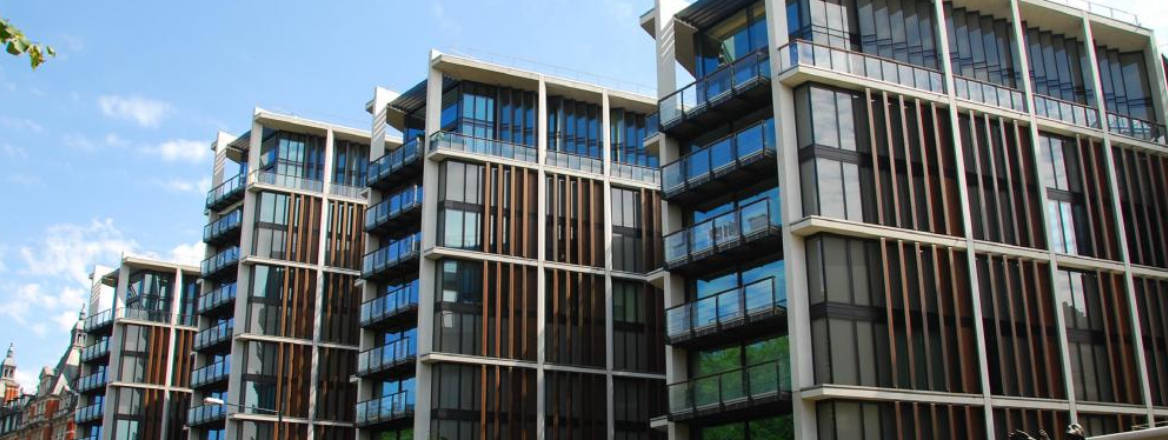Britain’s Criminal Finances Bill: A View from Central Asia
Well away from Whitehall, the UK government’s Criminal Finances Bill is getting noticed. That’s the good news. The bad news is that those at whom the Bill is directed question the government’s willingness to implement its proposed new powers.
Ashgabat, the capital of Turkmenistan, feels about as far from Whitehall as one could be. But that is where this author found himself recently, surrounded by elaborate white marble buildings and monuments, extraordinary neon lighting, garishly lit fountains … and by representatives from Central Asian financial intelligence units and law-enforcement agencies.
In these unusual surroundings, an unexpected topic arose over dinner, one that had also been reported in the regional press. Was it true, I was asked, that the UK was planning a new law for fighting financial crime that would allow people’s houses to be confiscated and bank accounts frozen without evidence?
And so it was that I found myself conducting an impromptu briefing on Her Britannic Majesty’s Government’s Criminal Finances Bill over glasses of Georgian wine (not bad), bowls of chorba (filling) while surrounded by the telpek and kalpak headgear favoured in the region (unnecessary indoors).
For those committed to the fight against corruption and, specifically, to countering the unenviable reputation the UK has garnered as a haven for investing the laundered proceeds of grand corruption from around the world, the Bill is welcome.
Of particular note – including, it would seem, to those in Central Asia – is the proposed introduction of Unexplained Wealth Orders (UWOs). The Bill contains two limbs related to UWOs. First, a person suspected of involvement in or association with serious criminality would be required to explain the origin of assets that appear to be disproportionate to that person’s known income.
Failing to respond satisfactorily would lead to the presumption that such assets are the proceeds of crime, with associated consequences.
Second, UWOs may be applied to politically exposed persons (PEPs) – such as foreign politicians, officials, their family members or those closely associated with them – from outside the European Economic Area (EEA), without an associated suspicion of serious criminality.
This latter power seeks to target those involved in corruption overseas – where gathering evidence to a UK criminal standard may be challenging – who launder the proceeds of their crime in the UK. It is this second provision that is the most eye-catching.
Put simply, the High Court of Justice may instruct a non-EEA PEP to explain his/her wealth, such as a mansion in London or cash pile in a private bank, and freeze these assets until a satisfactory explanation is forthcoming. It can do so without requiring the government or its law enforcement agencies to provide solid proof of serious criminality.
So far, so clear. However, the question that will quickly arise is whether UK authorities will implement these new powers. Recent history suggests they will proceed with the utmost caution.
In 2014, the National Crime Agency (NCA) dropped a claim against the late Israeli tycoon Israel Perry that had seen his UK and worldwide assets frozen via a High Court Order because the Serious Organised Crime Agency (the NCA’s predecessor) had alleged that a house, art and cash in various bank accounts were the proceeds of crime for which Perry had been convicted in his home country.
The case is complex, and included Perry giving evidence ‘from beyond the grave’ as it was recorded before he died. However, the pertinent issue is that Perry sued the NCA for loss and damage of income and investment opportunities because his money had been frozen and he was therefore unable to use it.
Which brings us back to the circle of telpek and kalpak in Ashgabat and the gathering of Central Asian financial crime-fighters.
A group that you might have thought would be all in favour of the UK freezing assets that are suspected of being stolen from their countries was unimpressed: ‘I’ll believe it when I see it’ was a general sentiment; ‘London can’t afford to scare away all the dirty money it has attracted’ was another widely-held view; and ‘these guys have expensive lawyers so this won’t work’ was a third opinion proffered to me.
While all the views may have merit, the third – namely the one of a vigorous litigation – is a genuine concern. The ‘opportunity cost’ – that is, the cost of the lost opportunity to use money that has been frozen – imposed on the recipient of a UWO and, as in the Perry case, the resulting possibility of expensive law suits will surely loom large as UK law-enforcement agencies consider applying to the courts for a UWO.
The Criminal Finances Bill has received cross-party support and has been cheered by NGOs fighting corruption; it’s an important next step on the government’s objective to strengthen the country’s financial crime defences and create the ‘hostile environment’ that deters dirty money.
But passing legislation will not suffice; implementation and enforcement will be key to creating the deterrent factor that the government seeks.
Like my new friends in Ashgabat, I will believe it when I see it.
WRITTEN BY
Tom Keatinge
Director, CFS
Centre for Finance and Security


